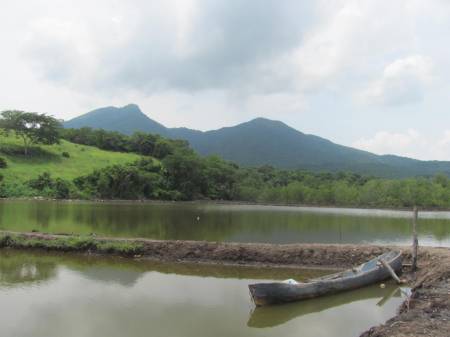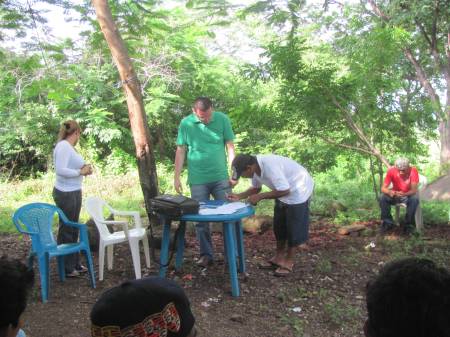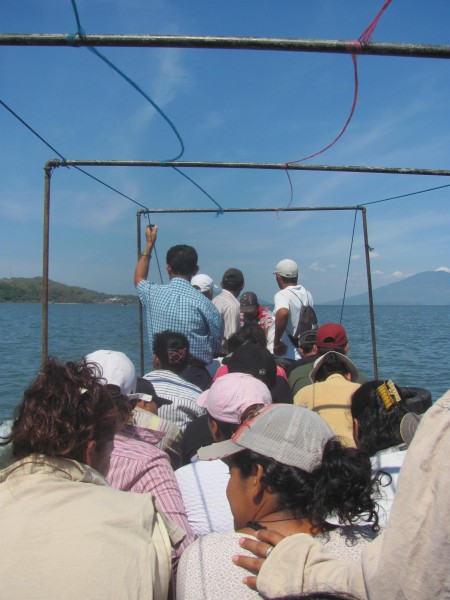An article by Erika Piquero, former PROAH volunteer, published on Latin Correspondent
The Honduran government’s website for Zones for Economic Development and Employment (ZEDEs) boasts promises of bountiful investment and employment opportunities.
These ZEDEs, commonly referred to as ciudades modelos – model or charter cities – are promoted by the government as free trade zones that will generate attractive foreign and national investment opportunities, coupled with legislative and governance systems that will offer substantial freedom: ZEDEs will have their own legislative systems. In a report regarding ZEDEs, the National Lawyers Guild maintains that “ZEDEs represent a significant expansion of free trade zones in that they facilitate the creation of autonomous privatized city-states designed to exist independently from the legal, administrative and social systems of the Honduran state.”
ZEDEs have gained support from free market enthusiasts and proponents of neoliberal development policies, especially libertarians who are eager to see their ideas put into practice. The ZEDEs are promoted as an opportunity to overcome some of the problems plaguing Honduras: poverty, social crisis, underdevelopment and so on.
Yet this plan, though it may seem innocuous to some, is not seen as a positive one among many Hondurans, especially rural and indigenous communities. Communities that have already been affected by plans for ZEDEs have read between the lines and see a more sinister side of these plans.
Decades of Land Struggle
The community of Zacate Grande, an island in Honduras’ Pacific Gulf of Fonseca (now connected to the mainland via a highway constructed in the 1970s), has dealt directly with the effects of ZEDEs as part of a decades-long territorial struggle.
The area was uninhabited until the 1920s, when indigenous Hondurans moved there. According to Honduran law, if uncultivated lands are occupied and worked for a minimum period of years, community land titles can subsequently be earned. However, this has not happened for the people of Zacate Grande.
To this day, Zacate Grande’s residents do not have land titles. They were promised under former President Zelaya, but the promise went unfulfilled after he was overthrown in the 2009 coup d’état, and the decree was declared unconstitutional in 2011.
Meanwhile, the community has been subject to the whims of a handful of wealthy Hondurans, who are eager to develop the lands in Zacate Grande for tourism, private vacation homes and (more recently) ZEDEs.
Some of the biggest names interested in the scenic waterfront lands of Zacate Grande are Miguel Facusse (owner of the Dinant Corporation) and his son-in-law Fredy Nasser. The terratenientes (large land holders) have been accused of forging land titles to ‘prove’ ownership, destroying the local ecosystem and engaging in numerous strategies to threaten and intimidate Zacate Grande’s community members off of their lands.
Land issues like this can be found throughout Honduras, following frighteningly similar patterns, especially among the Garifuna communities in northern Honduras and inhabitants of the Bajo Aguan region. According to University of California, Santa Cruz history professor Dana Frank, “you can see the pattern all over the country of these corporations and domestic Honduran elites using state security forces and private armies of security guards to intimidate indigenous people, afro-indigenous people and campesinos out of their lands.”
The Reality of Ciudades Modelos
In 2013, the Honduran government passed legislation allowing the corporations and individuals funding the ZEDEs to dictate the entire structural organization of the zone, including laws, tax structure, healthcare system, education and security forces. This kind of flexibility is unprecedented even in similar models around the world. More recently, specific zones have been identified for the implementation of the first ciudad modelo.
However, ZEDE law does not protect basic rights like Habeas Corpus, the inviolable right to life, freedom of religion, protection for free press and freedom from non-legal detainment, among many others. There is a blatant lack of transparency within the ZEDE structure, and it can even be imposed upon unwilling inhabitants under legislation recently passed in Honduras.
In a country where most citizens already lack political power, the potential implications of this are alarming. Daniel Langmeier, a human rights observer with experience in Honduras, notes: “We already have a state of defenselessness where laws and institutions are failing to protect citizens. Now, you get rid of those laws and the situation will spiral out of control, into true lawlessness.”
The Honduran state is actively surrendering Honduran sovereignty itself, allowing corporations and individuals to circumvent Honduran laws, while marginalized groups that already experience threats and extreme violence will face even greater threats of human rights violations.
Potential Violations of International Law
Rather than fulfilling promises of economic opportunities, ciudades modelos actually pose serious threats to human rights and indigenous rights in Honduras – which are already concerns in the current Honduran context.
Honduras has ratified both the International Covenant on Civil and Political Rights (ICCPR) and the International Covenant on Economic, Social, and Cultural Rights (ICESCR). In doing so, it is obligated to uphold its citizens’ right to self-determination and property rights. However, the recent legislature permitting advancement of ZEDEs is poised to violate both of these rights.
Additionally, Honduras has ratified the ILO’s Convention on Indigenous and Tribal Peoples and has signed the United Nations Declaration of the Rights of Indigenous Peoples, indicating an obligation to engage in free, prior and informed consent of indigenous groups when legislative issues might affect them. The Honduran government has failed to do this in many recent cases, and the increased lawlessness that ZEDEs bring will exacerbate this situation.
Dire and Deadly
What can be done? U.S. citizens should be having a public conversation about what is happening in Honduras, and the role that the U.S. government and foreign policy (and the lack of transparency around it) is playing. Media coverage and portrayal of the Honduran situation should be challenged and responsible, investigative journalism should accurately represent the Honduran situation.
There should also be greater awareness within the U.S. of citizens involved in the ZEDEs themselves: Michael Reagan (Ronald Reagan’s son), Grover Norquist, and others join the Committee for the Adoption of Best Practices for the Honduran ZEDEs.
There is an urgent need to strengthen human rights defense efforts in Honduras and for U.S. citizens to hold their government responsible for its foreign policy in Honduras and the region. The international community must remain vigilant and support those people and communities suffering these devastating impacts.
Erika Piquero was an international human rights accompanier with PROAH in Honduras from March to May 2014. PROAH provides international accompaniment to human rights defenders who find themselves under threat or harassment due to their individual and collective human rights work in an environment of repression and political persecution. For more information about the organization, please see their website.





